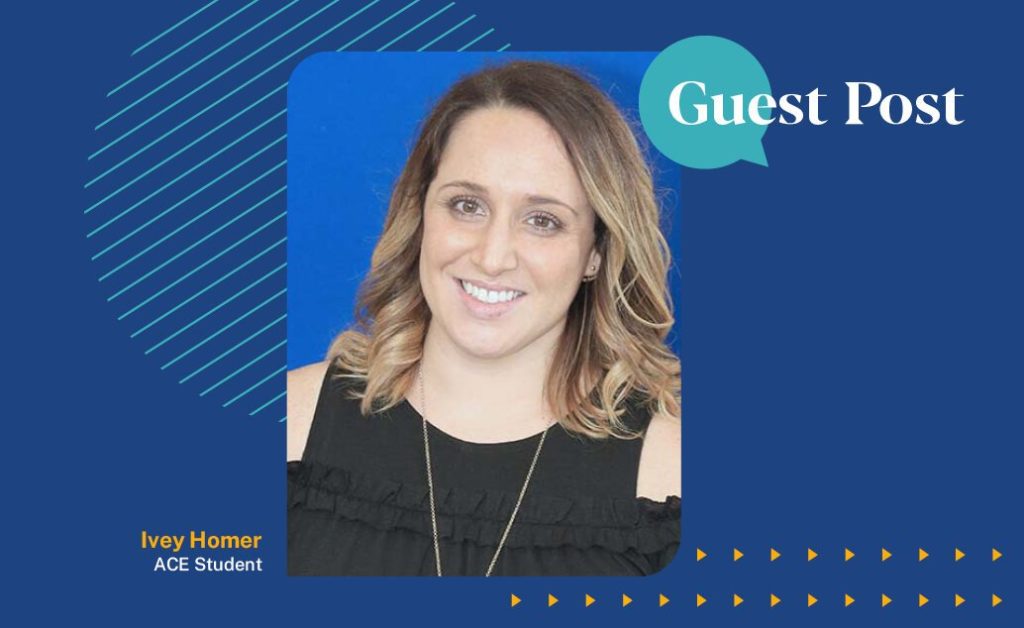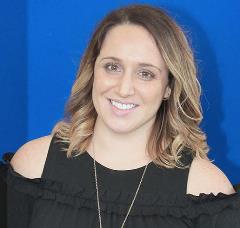
There’s a certain beauty in advocating for students, but there is also great power in letting students tell their own stories. With her digital publication, Voices of 206, American College of Education student Ivey Homer is giving students in her seventh-grade Language & Literature and eighth-grade English I Honors classes a platform to lift their own voices.
The S.C. Lexington Middle School teacher said the idea for the website began incubating after she started a Master of Education in Educational Technology program at ACE: “The program coursework gave me exposure to information that I would have never thought to learn about, [and] the courses I’ve taken have helped me find the courage to try out untapped technologies that have been used to leverage student learning and virtual collaboration, as well as discover the power of action research – which is what inspired me partly to create the classroom publication website, Voices of 206.”
After Ivey’s district sent her to the 2016 Digital and Media Literacy Institute through Teachers College at Columbia University, and later implemented TC’s Units of Study for Writing in district middle schools, Ivey was spurred to make the website a reality.

“I wanted to provide my students with an audience beyond the classroom and school,” she said. “And, with my superintendent’s heavy movement for teachers and schools to tell their own story, I decided to build a website to share through my professional Twitter account. I knew that if I provided students with an audience that was beyond me, they would spend more time paying attention to their grammar and conventions, and invest more of themselves into discovering their voice.”
All but a few of Ivey’s 95 students have contributed to the site, and many have voluntarily written additional stories.
“Not only has it boosted writing morale, but [it’s also boosted] their reading stamina,” Ivey said. “Many students spend part of the daily independent reading time in class reading stories on the website and leaving comments.”
In addition to deepening students’ relationship with reading and writing, the website also fit perfectly into Ivey’s second-quarter digital design course, allowing students to exercise their skills using Google Sites and allowing Ivey to step back and gradually release responsibility.

“What I have learned through this experience – and my seven years teaching – is what they really need is less you [and] more them,” she said. “It’s unnatural at first, but it is worth it in the end when students realize they have the freedom to tell their story the way they want it told, not the way a formal structure suggests.”
That freedom – and the trust implicit in that freedom – has given Ivey’s students the confidence to write more openly about their personal experiences, imparting lessons of their own.
“There have been so many powerful submissions,” she gushed, “but one of the most powerful submissions I received had the underlying theme that sometimes kids have to step up and be the adult. It wasn’t because the writing was perfect. [It was because] it was relatable, real and a touchy subject. This particular student didn’t write the story to make his parents look bad, but to share a story about family and how they always have each other’s backs. Even when you’re a kid, you can make a difference and be there for others when an adult cannot. It was quite a beautiful message.”
For educators looking to engage their students with a similar platform, Ivey advises starting with cultivating a love of reading first.
“Students read for many reasons, one of the main being to find themselves in the story,” she said. “Through igniting a love of reading, students could then be inspired to share their stories in hopes of making others feel the way they once felt.”
Let American College of Education’s education programs inspire your next groundbreaking teaching initiative.

